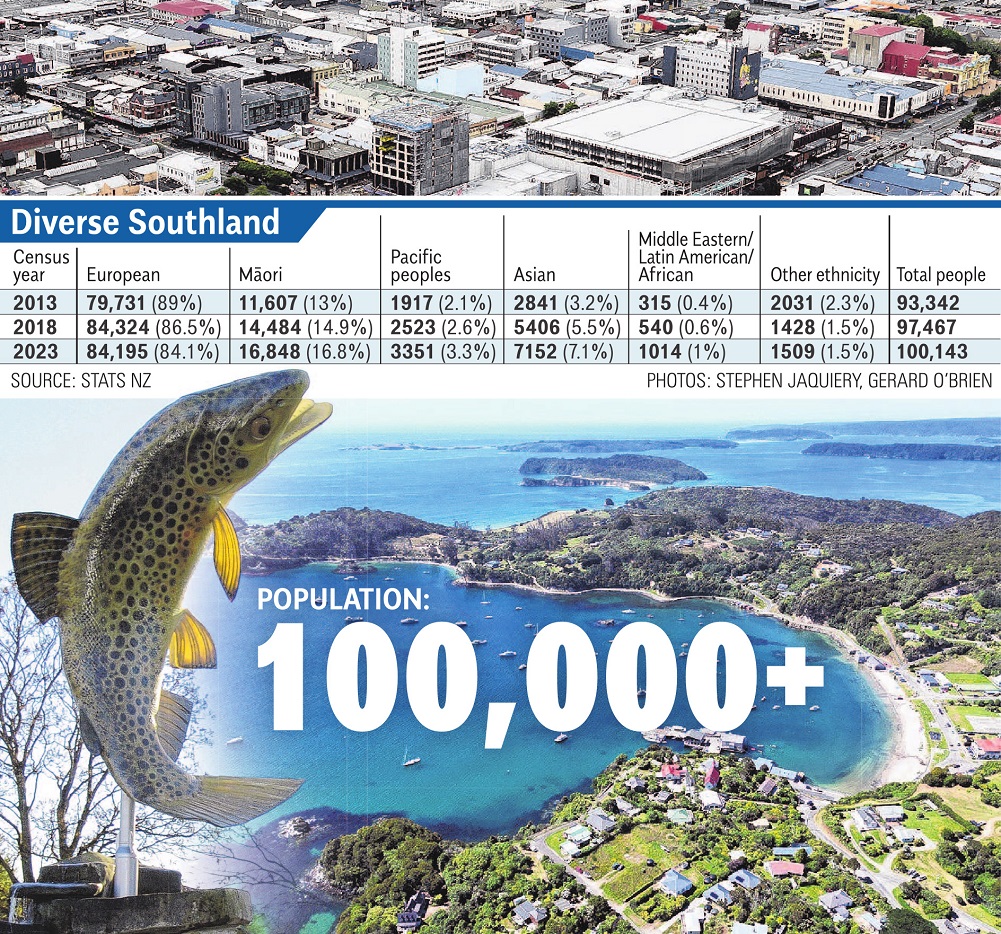
In the past five years Southland has added just under 3000 more people, census results say.
But the region can expect more rapid growth now the Tiwai Point aluminum smelter has signed a power deal to stay open for another 20 years.
Census 2023 figures show Southland had the lowest growth rate — increasing 2.7% from 97,467 to 100,143 people, just behind Wellington’s 2.8% increase from 506,814 to 520,971 usual residents.
But Great South chief executive Chami Abeysinghe expected the security of the Tiwai contract to boost business confidence and pave the way for new investments and population growth.
The Beyond 2025 model showed by 2054, if the smelter remained, it expected more than 8650 new jobs, a population increase of more than 18,530 as well as an annual GDP boost by almost $4 million.
"This, and the efforts we are putting in to develop aquaculture, tourism and agriculture and the support needed for housing, energy, workforce, and data will need to be considered and worked with our regional leaders and council staff.
"A regional spatial plan would be essential to support these needs, and something that will likely need to be done as soon as possible," Mrs Abeysinghe said.
More housing, improved infrastructure, health and education facilities would be needed to support the community.
Southland Business Chamber chief executive Sheree Carey also expected last week’s announcement to positively impact employment opportunities and population growth.
"We anticipate increased confidence among residents and businesses alike, fostering an environment conducive to population growth," she said.
"Encouraging entrepreneurship and fostering a thriving business ecosystem would be crucial in accommodating the needs of a growing population."
Investing in trades training and development programmes would ensure Southland’s workforce remained skilled and adaptable to meet new demands, she said
City planning and infrastructure development would also play a vital role in accommodating population growth.
"This includes the need for strategic urban planning to ensure efficient land use, infrastructure upgrades to support increased demand, and the provision of essential services such as healthcare, education, and transportation," Mrs Carey said.
Invercargill Mayor Nobby Clark said the Tiwai power contract was "fantastic news" for the region.
"Not only does it create stability in regards to the retention of jobs, but it also opens the door to explore some of the wider conversations that we have been having.
"Over the coming years, we anticipate strong growth in a number of industries including aquaculture, tourism and sustainable fuels and the establishment of large businesses in these areas will have a flow-on effect on housing.
"In the past six months we have been approached by at least 15 developers looking to invest in Invercargill and Bluff through housing and subdivision developments."
Southland District Mayor Rob Scott said the council was already developing town and spatial planning aspects at community board level.
"It’s a lot easier to plan when you have got that certainty ... over the last two years it has made it difficult to plan for one scenario."
He expected diversified industry would add to the opportunities available in the region.
But Mr Scott expected unlocking housing and adequate water services to a growing population would be an ongoing challenge for the region’s leaders.
"That’s one of the challenges that we’re working on at the moment that seems to underpin quite a lot of the future stuff."
First Presbyterian Church minister Nyalle Paris said many city churches had increased attendance from new international residents.
The church rented rooms for English language lessons five days a week.
Many internationals had opened their own business since they had arrived.
"The confidence for the next 20 years and that’s going to be a big green light for the South and it will further increase the diversity going forward."
• People can list more than one ethnicity on their census form.
By Toni McDonald












